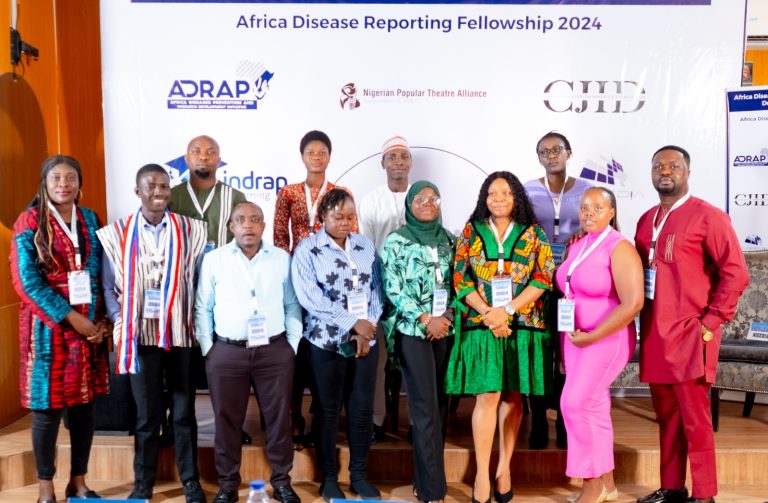The founder of, Africa Disease Prevention and Research Development Initiative (ADRAP), Dr Joseph Enegela, has urged African journalists to tell their stories to reflect the true situation on the continent.
He said this in Abuja at the closing of the maiden Africa Disease Reporting Fellowship (ADReF) 2024.
The six-week fellowship was focused on tackling biases often associated with disease reportage in Africa.
The fellowship brought together 13 health and science journalists from Nigeria, Liberia, Ghana, Burundi, Kenya and Rwanda.
“It is important for African journalists to report on health issues from the African perspective,” Enegela said.
He said this would drive the needed change that the health sector needed on the continent.
He also emphasised the importance of breaking the stereotypes that accompanied the way African stories were being told.
Enegela, a medical practitioner and development advocate, told the fellows to use their writing to change the narrative by first understanding issues surrounding health in Africa, and demystify them which would then bring about change.
“One of the key objectives of this fellowship is to bridge the knowledge gap in health reporting by exposing you to the latest tools and techniques.
“With this you will begin to understand the social aspects of diseases, scientific developments, management strategies, policies, research focus, all from an African perspective,” he said.
One of the facilitators, Mr Oncheh Odeh, a journalist and communication development expert told the fellows to look at every story with a specific mindset.
“Be deliberate in creating the type of story you want to tell, you should have an agenda you want to pursue while telling your story,” he said.
Some of the fellows bared their minds on the impact the fellowship would have on their reporting going forward.
For Ms Francine Saro from Rwanda, the fellowship was a special kind as it was original to Africans.
She added that if African journalists were committed to the type of reporting techniques learnt during the fellowship and decide to own it, they could achieve more.
Ms Njeri Murigi from Kenya said that she was glad about the fellowship because it helped her to decolonise her mind as she would now begin to see Africa in issues and report them from that perspective.
On his part, Mr Agbonkhese Oboh of Vanguard Newspaper, Nigeria said that it was personal for him because whenever he saw news on Nigeria he felt that something was missing.
“I have been trying to develop a blog about Technology, Climate and Health (TECH) and how they affect Africa, but have not gotten around to it.
“Coming here has however given me a 100 per cent proof that I am on the right track.”
Ojoma Akor of Daily Trust in Nigeria said that she would recommend the fellowship to colleagues because it has shaped her sense of reportage and would shape theirs too and translate to a better Africa.
“Some of our reports will now draw attention to surveillance issues, gaps and the way forward. A better Africa is a better system for our continent”, she added.
The fellowship aimed to provide journalists with the necessary tools and knowledge needed to report on health issues from well-informed perspectives.
Organised by ADRAP in collaboration with Isumedia, AkweyaTv, Centre for Journalism Innovation and Development (CJID) and Africa Science, Technology, Innovation, it was tailored to enhance the reportorial skills of journalists covering health-related topics in Africa.
By Folasade Akpan


